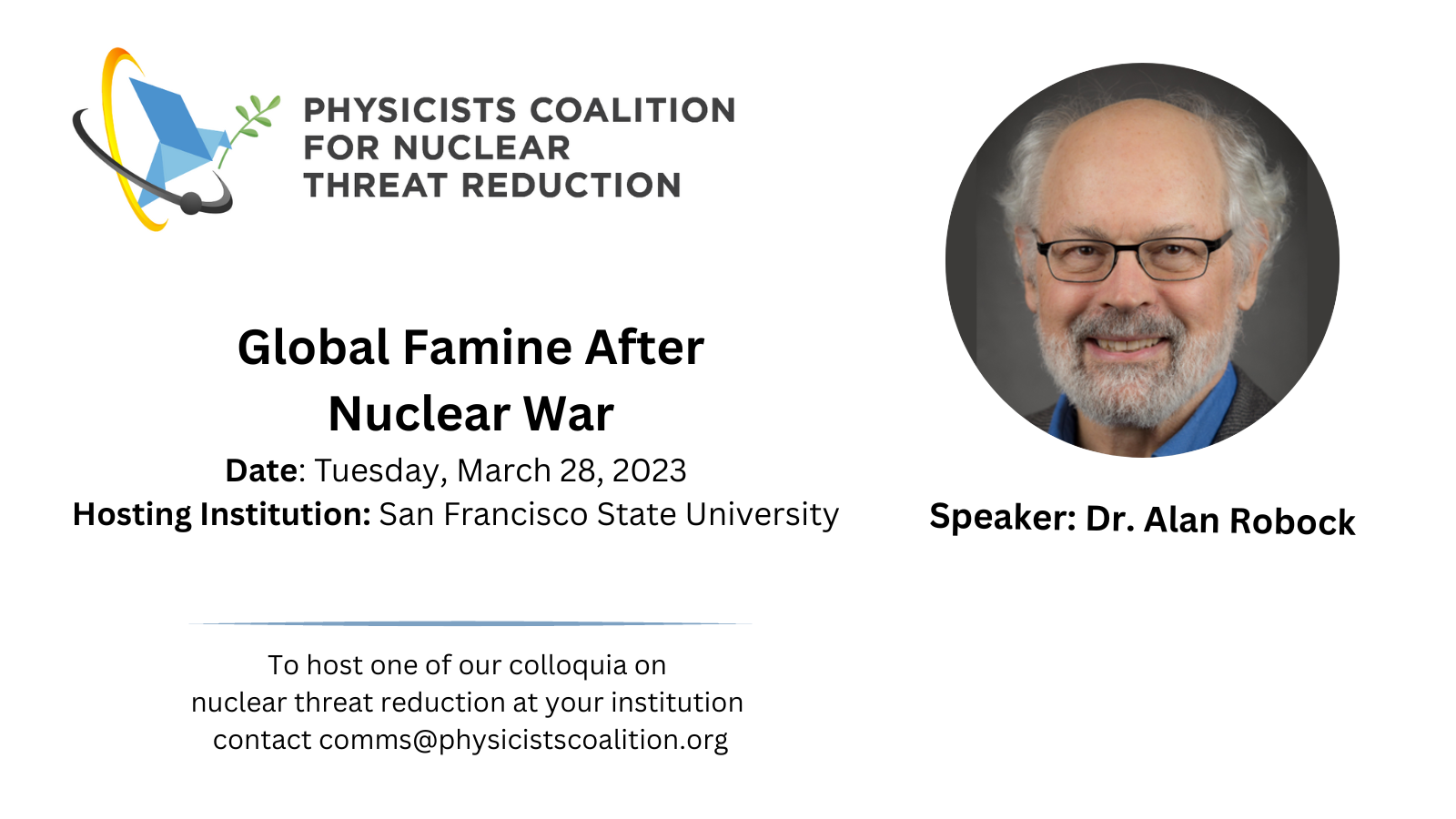
- This event has passed.
San Francisco State University- Global Famine after Nuclear War
March 28, 2023

Colloquium Abstract
A nuclear war could inject so much smoke from the resulting fires into the stratosphere that the resulting climate change would be unprecedented in recorded human history. Our climate model simulations find that the smoke would absorb sunlight, making it dark, cold, and dry at Earth’s surface and produce global-scale ozone depletion, with enhanced ultraviolet radiation reaching the surface. The changes in temperature, precipitation, and sunlight from the climate model simulations, applied to crop models show that these perturbations would reduce global agricultural production of the major food crops for a decade. The direct effects on people of nuclear war would be horrific, with blast, fires, and radioactivity killing millions of people, but the indirect effects on the food supply could kill 15-20 times as many people. A war between India and Pakistan could kill 1 to 2 billion people from starvation, and a war between the U.S. and Russia could kill more than 5 billion people. My current research project, being conducted jointly with scientists from the University of Colorado, Columbia University, Louisiana State University and the National Center for Atmospheric Research, is examining in detail, with city firestorm and global climate models, various possible scenarios of nuclear war and their impacts on agriculture and the world food supply. The greatest nuclear threat still comes from the United States and Russia. Even the reduced arsenals that remain in 2023 due to the New START Treaty threaten the world with nuclear winter. The world as we know it could end any day as a result of an accidental nuclear war between the United States and Russia. As a result of international negotiations pushed by civil society led by the International Campaign to Abolish Nuclear Weapons (ICAN), and referencing our work, the United Nations passed a Treaty to Ban Nuclear Weapons on July 7, 2017. On December 10, 2017, ICAN accepted the Nobel Peace Prize “for its work to draw attention to the catastrophic humanitarian consequences of any use of nuclear weapons and for its ground-breaking efforts to achieve a treaty-based prohibition of such weapons.” How soon will pressure from the 86 and counting nations who have ratified the nuclear ban treaty get the United States and the other eight nuclear nations to sign this treaty? The Physicists Coalition for Nuclear Threat Reduction is working to make that happen.
About the Speaker
Dr. Alan Robock is a distinguished professor of climate science in the Department of Environmental Sciences at Rutgers University, associate editor of the journal Reviews of Geophysics, a former Lead Author of the Fifth Assessment Report of the Intergovernmental Panel on Climate Change, and a former Peace Corps Volunteer in the Philippines, and has been researching the climatic and agricultural impacts of nuclear war for the past 40 years.
